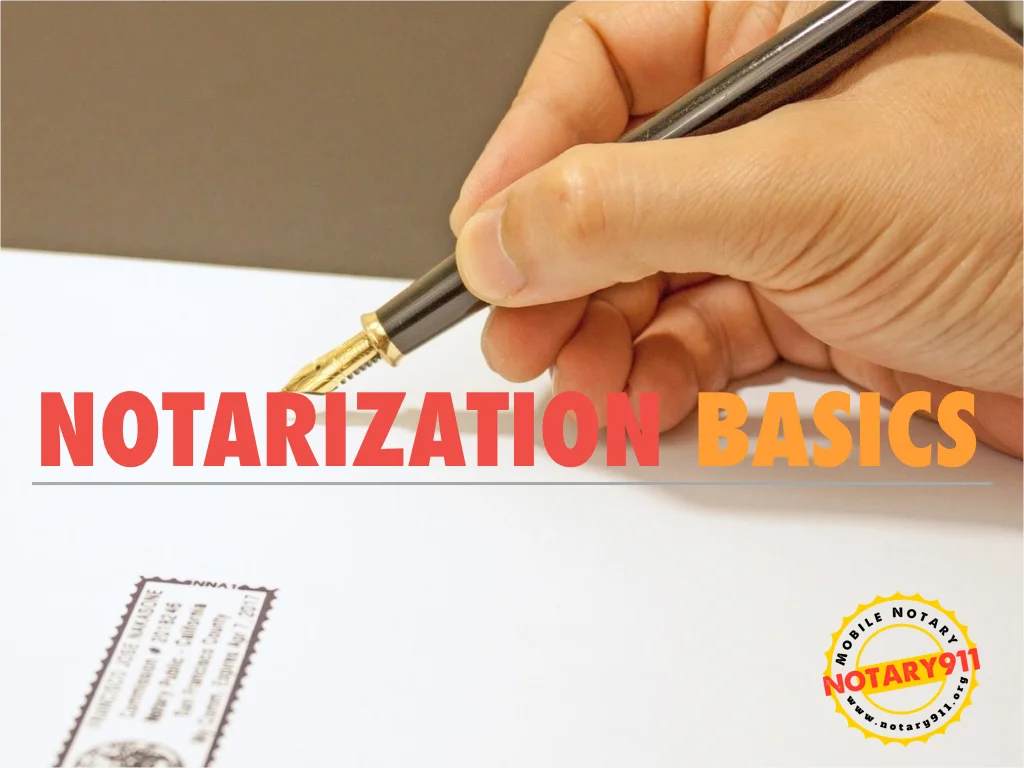
NEWS
Notarization Basics
Our presentation Notarization Basics on Slideshare
Our new presentation "Notarization Basics"
When notary will refuse notarization?
There are few reason when notary public, by law, must refuse notarizing the document
There are few reason when notary public, by law, must refuse notarizing the document:
• The notary cannot verify the identity of the signer;
• The notary has a beneficial or financial interest in the document;
• The notary is unable to communicate with the signer (person is not mentally competent to sign);
• The notary has knowledge that the transaction is fraudulent;
• The signer did not personally appear before the notary at the time of the notarization;
• The document contains blank spaces;
Why notarization is important?
Chief among the reasons to have certain documents notarized is that having a document notarized is a deterrent to fraud. Getting agreements notarized adds a layer of verification. Notarization is the assurance by a duly appointed and impartial Notary Public that a document is authentic, that its signature is genuine, and that its signer acted without duress or intimidation, and intended the terms of the document to be in full force and effect.
Notarization not only makes it more likely that signors are who they say they are but also is mandatory in some states for certain agreements, such as deeds, mortgages, easements, powers of attorney and living wills.
Having certain papers notarized also is important when disputes are litigated; affidavits, which are sworn statements, will not be considered by a court unless they are notarized. Notarized documents also are considered self-authenticating, which means the signers do not need to testify in court to verify the authenticity of their signatures.
Notaries Public Official Status
Notaries have the power to impart an official imprimatur to a document or transaction. There are a plethora of judicial opinions that declare Notaries are “public officers.” (See, e.g., Britton v. Nicolls, 104 U.S. 757, 765 (1881); Werner v. Werner, 526 P.2d 370, 376 (Wash. 1974); and Commercial Union Ins. Co. v. Burt Thomas-Aitken Const. Co., 230 A.2d 498, 499 (N.J. 1967).) But public official status is different for a Notary than for many other public officials. Unlike some public officials, e.g., elected officers, appointed administrators or policemen, a Notary is not a government employee, per se. This distinction can have far-reaching ramifications, especially in the area of personal liability. Usually Notaries are not afforded the sovereign immunity protection routinely available to public officials acting within the scope of their authority. Indeed, in some jurisdictions the enabling statute identifies the Notary as a quasi-public official (see, e.g., Kan. Stat. Ann. § 53-101; and Mo. Rev. Stat. § 486.220.3) and in others the same result has been reached by court decision (see, e.g., Transamerica Ins. Co. v. Valley Nat’l Bank, 462 P.2d 814, 817 (Ariz. Ct. App. 1969); and Ely Walker Dry Goods Co. v. Smith, 160 P. 898, 900 (Okla. 1916)). These classifications, however, are primarily for liability purposes, and do not detract from the central thesis that a Notary is a public official empowered by the states to perform specified duties.
Notary should be identify as a public servant because notarial services are rendered to the public at large under the authority of state statutory rules. Notaries are important functionaries who are obligated to serve individual members of the public. Although notarial acts benefit the public at large by fostering reliance on various types of documents and acts, Notaries nevertheless are distinguishable from other public servants whose primary obligations are to the public as a whole, instead of individual members.
(based on "The Notary Public Code of Professional Responsibility" National Notary Association)



